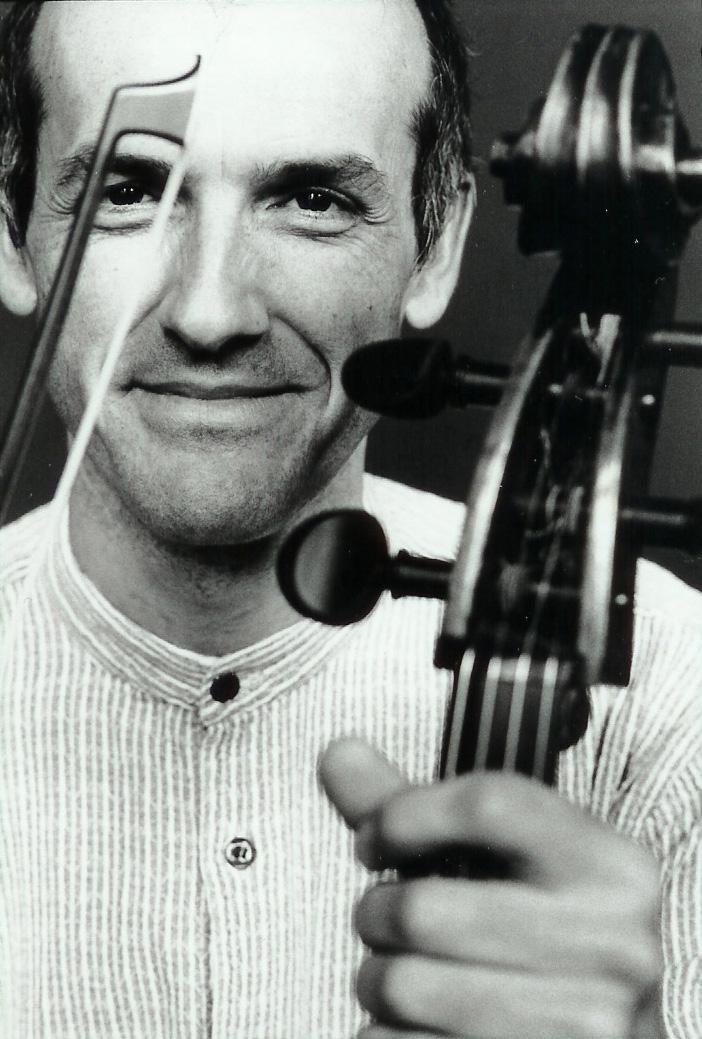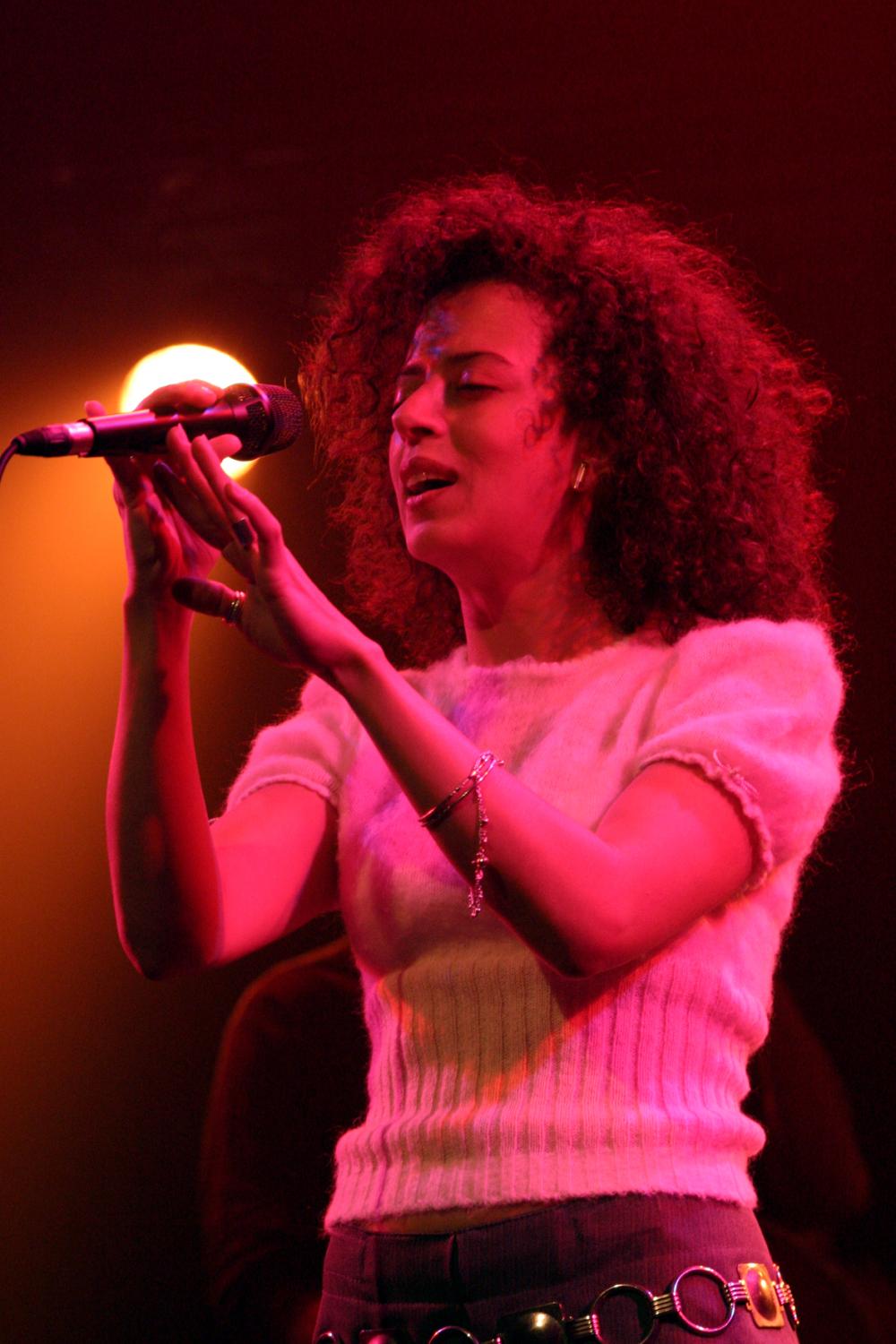Soirée composée
Ensemble Explorations, Laïla Amezian & Erwin Vann and the art of seduction
The thread running through the 2006 Klara Festival is the theme of temptation. The world’s repertoire includes a great many compositions which in one way or another give shape to the theme of attraction, enchantment and seduction. At the same time, this theme refers to the irresistible charm of music as a discipline.
This Soirée composée links three elements together. The Ensemble Explorations, with at its heart the cellist Roel Dieltiens, presents a performance of Olivier Messiaen’s Quatuor pour la fin du temps. Visuals based on Der Erlkönig, Franz Schubert’s composition based on Goethe’s ballad of the same name, will also be shown. The Belgian-Maghribi singer Laïla Amezian and the jazz saxophonist Erwin Vann are working on a part of the programme based on Western opera compositions from the second half of the nineteenth century.
Messiaen
Messiaen wrote his Quatuor, an eight-part composition for violin, clarinet, cello and piano, in 1940 and ‘41 as a prisoner of war at the Stalag VII-A camp in Silesia. The score was accompanied by a passage from the Revelation of St John in the Bible, which describes the Apocalypse, the end of time, when the seventh angel proclaims that ‘it can no longer be postponed’ and that ‘God’s secret decree will be fulfilled’. Although Messiaen’s music arose in the apocalyptic context of the Second World War, his ‘fin du temps’ should nevertheless be interpreted as an expression of his religious interests. His composition radiates timelessness, and describes the longing for and the attraction of eternal peace in harmony with God.
Schubert
The revelation of St John includes the appearance of the four riders of the Apocalypse. The fourth rider is mounted on a pale yellow horse. ‘The Rider’s name was death, and he was accompanied by the shades.’ In Goethe’s poem Der Erlkönig, a father gallops through the night on his horse in search of help for his child, who he holds fatally ill in his arms. The child is delirious and sees apparitions: the king of the elves appears out of the mist in front of him and charms, beguiles and tempts him to depart from life and let himself slip into death. In Schubert’s fully composed song we hear a galloping horse, the father’s fear on this hectic ride, and the child’s death throes in high, light tones. This song was not only set to music by several composers, but also inspired a great many artists to give shape to their own version of this touching song. These pictures will also be shown during this soirée composée.
Laïla Amezian & Erwin Vann
The third part of the evening will be a creation by Laïla Amezian & Erwin Vann. When they accepted the commission for this soirée composée on the theme of ‘temptation’, Laïla Amezian sought out a personal link with the subject. What she found was ‘Orientalism’, the attraction the East has for Western culture. Her personal history – of Arabic-Maghribi descent, born and raised in Belgium – unites the East and West. In addition, in the musical course her life has so far taken (Arabanda, Oblomov, Studio Pagol, etc.) she has very consciously wanted to experience her position between two cultures in terms of music: not to disguise or remove the ambiguity there, but to let it take its course.
Together with the jazz saxophonist Erwin Vann, Laïla Amezian plunged into the opera repertoire of the second half of the 19th century. At that time, under the influence of colonialism, exoticism was very much in vogue in Western Europe. Lakmé, by the French composer Léo Delibes (1876-1891) tells the tragic love story of an English lieutenant and the daughter of a Brahmin priest in 19th century India. Aida, by Giuseppe Verdi (1813-1901), commissioned by the Egyptian viceroy for the opening of the Suez Canal, tells of the tragic love of the Egyptian general Radames and the Ethiopian slave girl Aida. Salomé by Richard Strauss (1860-1949), based on Oscar Wilde’s play, is the biblical story of Salomé, who demands the head of John the Baptist as a reward for the dance of the seven veils she performs at King Herod’s feast. And so on.
Laïla Amezian will be working with the lyrics sung by these oriental women. With Erwin Vann (who’ll take care of the arrangements) she is studying the way composers, educated in a Western idiom, incorporated these oriental elements into music: the way modal patterns replace the tonal, the way percussion and brass instruments come to the fore, the way the rhythm, the repetitiveness and even the intoxication typical of Arabic music creep into their work.
The director Ruud Gielens is fusing these diverse elements into one ‘soirée composée’. He is employed full-time by the KVS and at the Kaaitheater has recently directed a highly successful production of Peter Handke’s play without words The moment we knew nothing about each other.
musique Olivier Messiaen, Franz Schubert e.a.
par Ensemble Explorations : Guido de Neve (violon), Benjamin Dieltjens (clarinette), Roel Dieltiens (violoncelle) & Luc van Hove (piano) / Laïla Amezian (chant), Erwin Vann (sax/electronics/arrangements), Michaël Grébil ('oud/ceterina d'amore), Lode Vercampt (cello)
mise en place Ruud Gielens
coproduction Festival de Flandre Bruxelles & Kaaitheater

